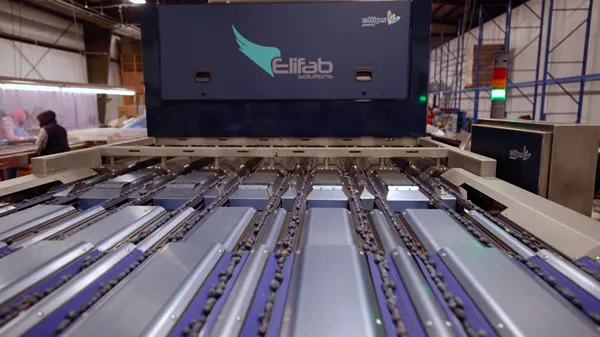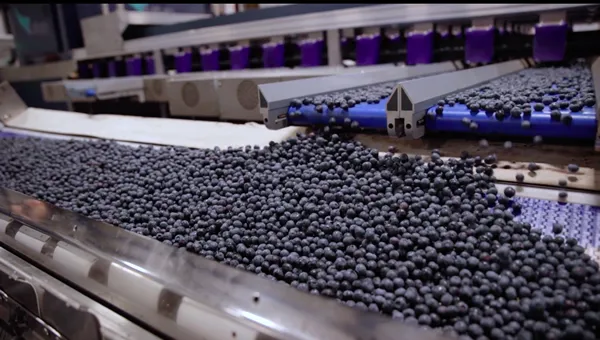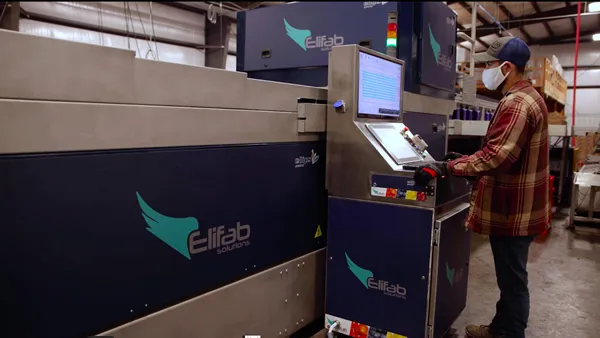"We want to supply consistent, nice-looking, tasty products that also transport well," begins Sukh Bubra, who owns Dr. B's. This company recently established a new blueberry growing and packing facility in southwestern Washington. "We had to improve our operational efficiency as we expanded our acreage and production capacity. Plus, we want to ensure the products we deliver continue meeting our customers' expectations."

Defects, losses, and damaged reputation
Dr. B's notes that the sorting process affects blueberry quality with especially far-reaching consequences. Sukh says grading is not a problem in good crop years, but in poorer-quality years, it is hard to accurately detect all the defective berries. "You have to sort the good from bad quality every year; otherwise, the retailers reject the entire batch." The volume of rejected fruit can be between 11,250 and 13,500 kilograms, Sukh says.
"When that happens, it has a big impact. You have to rework the fruit or sell it at a lower quality and price. If that occurs in an export situation, your hands are tied. You can't do anything about fruit getting rejected all the way in, say, Malaysia. That's why the clamshell's entire content’s quality is important. You want to maintain a good reputation."
Efficiency
Dr. B's encountered some challenges in their search for an efficient sorting system. "Given the short season (ten weeks) and limited warehouse space, we needed more throughput to sort and pack the blueberries," explains Sukh. As mentioned, he considers getting the best quality out of a grader vital. "The fruit is different every year, and the extreme weather conditions have a considerable effect. Even when the fruits' quality declines, we still want to fill the clamshell containers with the best quality possible."

Bubra says shelf life is challenging too, especially during transport through hot areas, like Arizona, or overseas when the fruit has to last up to seven weeks. Dr. B's focuses primarily on North America but also exports to growth markets such as Japan, China, and Malaysia. "Our packaged blueberries must withstand transportation and have improved shelf life," he adds.
High processing capacity
In the end, Dr. B's chose an Ellips - Elifab Berry Class grader. This sorting machine meets their needs. Sukh says aspects like high throughput, the ability to optimize shelf life for long-distance transportation and export, accuracy, and flexibility were behind this decision. "We made sure this machine packages the clamshell consistently and at a high level of quality. It sorts very well, is very flexible, and is easy to use. We're sure that, even if the berries are of inferior quality, the machine can still detect defects and guarantee consistent premium results," is how he summarizes the experience of using this grader.

According to Sukh, the machine controls quality so precisely that no manual inspection is required. "That means our packing plant has less staff and the associated costs. Using the Ellipse software means we've minimized the retailer rejection risk. And when people realize what quality you can deliver, they come knocking. Our clients love guaranteed, consistent quality and jumbo-sized blueberries, and more of them trust us because of our improved reputation. We're delighted with that."
Growth
Dr.B's acreage spans over 400 hectares, and last year, the company packaged some seven million kilos of blueberries. It expects to keep growing and increasing that volume annually over the next three to four years and wants to expand even further. That would also mean it would need more processing capacity. "We plan to expand even more because we're now delivering at higher standards and getting increased demand from the market. We want to grow with Elifab and Ellips because they help us achieve the best possible quality for our buyers; that's something we're very grateful for," Sukh concludes.
 Ellips - Elifab
Ellips - Elifab
US: Sam Kastel, sam.kastel@ellips.com
Europe: Ed Westerweele, ed@elifab.com
www.ellips.com
